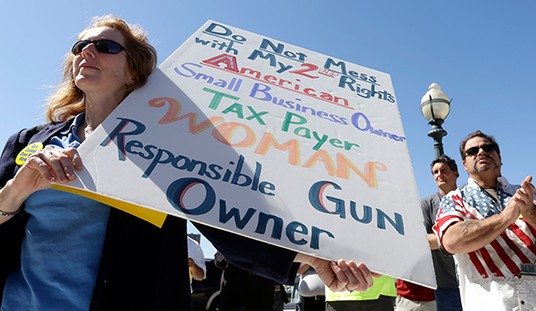After the Christchurch massacre in New Zealand, officials there went on an anti-gun tirade. They went from being a country that wasn't particularly awful as things went on the international stage for gun rights to one that was, and it happened overnight.
Unfortunately for officials there, it seems like in most other places, people who want guns are still getting guns despite all of the laws saying otherwise. It's a shame we can't find law-abiding criminals anywhere on Earth, isn't it?
Anywho, one issue they're running into is with privately made firearms, sometimes called "ghost guns" by the media. However, the author has some suggestions for new gun laws there, and some of them are stupid.
I'm going to start with a couple that, while dumb, aren't the worst of the three.
2. Penalties for obtaining blueprints
While the manufacture of 3D-printed firearms is illegal, there is nothing specific in New Zealand law about downloading blueprints.
There may be scope within existing censorship laws around downloading objectionable material. But this may be limited by the need to classify each plan or blueprint as objectionable. And artificial intelligence means these plans can change and evolve rapidly.
More wholesale laws covering the computer-aided manufacture of firearms or their individual parts would be preferable.
...
3. Preventing ‘ghost ammunition’
Privately manufactured firearms still require ammunition to be effective, and the Arms Act is only partly effective in this area.
Only firearms licence holders can lawfully possess non-prohibited ammunition, and all firearms dealers and ammunition sellers must keep a record of those transactions.
But that obligation does not apply when firearms licence holders give, share or otherwise supply ammunition among themselves. Furthermore, there are only limited regulations around obtaining the precursors or tools for making ammunition, with only a few key ingredients, like gunpowder, restricted to licence holders.
The problem is that "blueprints" are really just computer files. They're also properly considered a form of speech.
Additionally, at what point is someone violating a law against having them? Do they have to be on the computer, or just on the cloud in some manner that allows the user to access them at will?
How are you going to enforce such a law without people having broken the law by making their own guns?
Honestly, that whole thing is dumb.
So is trying to restrict "precursors" for making one's own ammunition. A lot of people reload, and trying to make that more difficult isn't going to do a whole hell of a lot. These are unserialized items that will easily end up in criminals' hands one way or another, no matter what you do.
But as dumb as these are, the first suggestion is the real kicker.
1. Making guns detectable
Unlike the US and some other countries, New Zealand does not mandate that every gun be detectable by containing enough metal to set off X-ray machines and metal detectors.
The US also prohibits any firearms with major components that do not show up accurately in standard airport imaging technology.
And this is why I mock anti-gunners as morons.
It's already illegal to make your own guns in New Zealand. Privately made firearms are prohibited in the country. Making one is illegal in and of itself. So what the author proposes is to create another law that also prohibits undetectable firearms.
If they're already breaking the law by making a gun, why would they bother making it detectable?
"Well, I'm going to commit a crime, but I want to follow the law while doing it," said no criminal ever.
I know this would apply to traditionally manufactured guns, but those are already made with enough metal to be detectable. The only reason the US passed this law was because there was misplaced fear that Glocks could go through metal detectors, which they can't.
The only guns that could probably do that are made on 3D printers. Yet no company manufactures their guns in such a way, only those who want them for private use or to end up in criminal hands use 3D printers.
A new law won't stop the criminals, and the law-abiding in New Zealand can't make them anyway, so it doesn't change anything for them.
The fact that this even looked like a good idea illustrates some of the delusional thinking that goes into gun control in the first place.








Join the conversation as a VIP Member